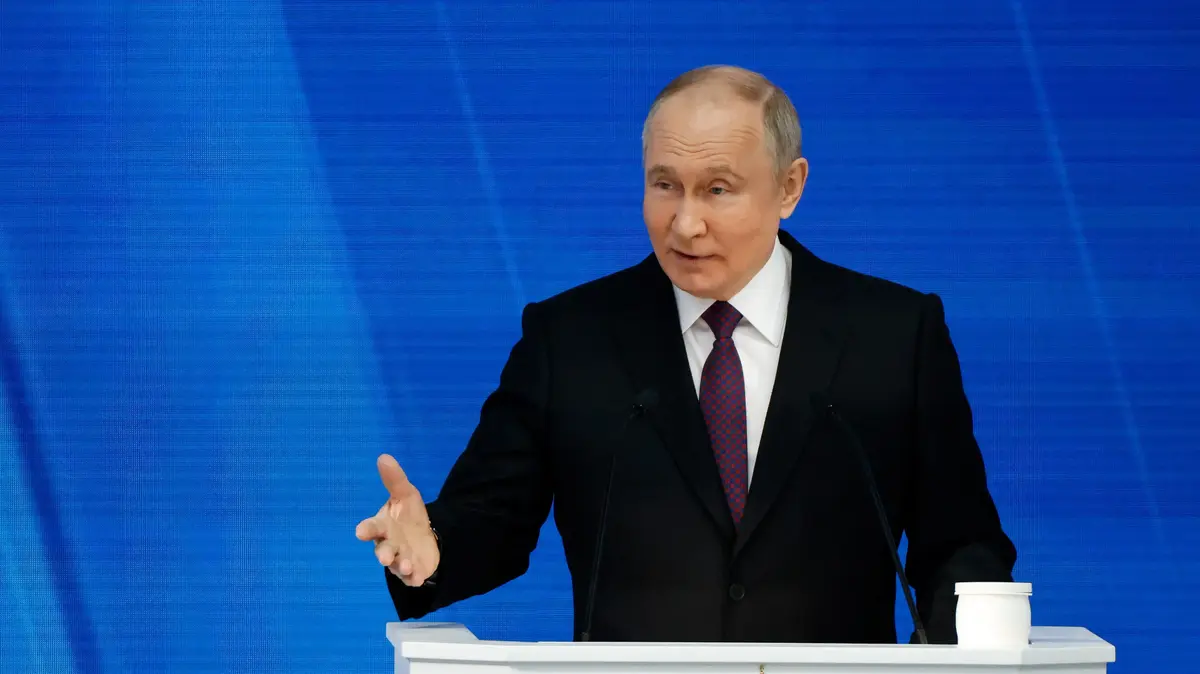Ukraine crisis explained in a nutshell: That's what the conflict with Russia is about
Created: 02/18/2022, 12:44 p.m
By: Sven Hauberg
A Ukrainian member of the Self-Defense Forces on the Maidan in 2014: the protests on the square in the heart of Kiev began peacefully but ended in blood.
© Robert Ghement/picture alliance/dpa
More than three decades ago, Ukraine declared its independence from the Soviet Union - the beginning of a conflict that has claimed the lives of thousands and could continue to escalate.
Kiev - Is Russia Attacking Ukraine?
This anxious question has been around for weeks now.
The Kremlin has asserted that it is not planning anything of the sort - and also recently declared that it would withdraw some of its troops, estimated at more than 100,000, from the border with Ukraine.
But the West doubts the Russian commitments.
And even if President Vladimir Putin actually recalled his troops to their home barracks, the conflict between Russia and Ukraine would still not be defused.
Because the differences between Moscow and Kiev go deep and go back around three decades.
Until its collapse in 1991, Ukraine was part of the Soviet Union.
On August 24, 1991, it declared its independence from the USSR and left the Soviet Union.
A referendum follows in which around 90 percent of Ukrainians - including a majority of Russian-speaking citizens in Crimea - vote in favor of secession from the Soviet Union.
Three years later, when Ukraine signed the Non-Proliferation Treaty, Russia assured the country that it would respect its sovereignty.
Nevertheless, many Russians are still of the opinion that Ukraine is actually still part of their country - if not on paper, then at least "in the heart".
Ukraine crisis: The Euromaidan protests split the country
This is no different in parts of the Ukrainian population.
While the west of the country feels more European, many people in the east of Ukraine are close to the Russian Federation.
This internal division is also reflected in the foreign policy of the government in Kiev, which has tried for years to maintain good relations with Washington, Brussels and Moscow.
This went well for a while - until the painful division in society revealed itself in 2013.
When President Viktor Yanukovych, under pressure from Moscow, declared that he did not want to sign an association agreement with the EU, pro-European demonstrations erupted in Kiev - the so-called Euromaidan protests.
More than 80 people die in the course of the conflict.
While a new transitional government is being formed in Kiev, the situation on the Crimean peninsula in southern Ukraine, where many people of Russian origin live, is escalating.
In March 2014, the parliament of the Autonomous Republic declared Crimea's independence from Ukraine, followed by the invasion of Russian troops, a controversial referendum and finally the incorporation of Crimea into Russian territory by Moscow.
In March 2014, the result of the controversial referendum was celebrated in Crimea.
© Yuri Kochetkov/picture alliance/dpa
Ukraine crisis: civil war-like conditions in the Donbass
In eastern Ukraine, in the Donetsk and Luhansk oblasts, an armed conflict broke out just months later, which has continued to this day.
Separatists supported by Russia are fighting Ukrainian government troops and so-called Ukrainian volunteer militias in the region, also known as Donbass.
Neither the Minsk Protocol of 2014 nor the Minsk Agreement a year later can put an end to these civil war-like conditions.
In the years that followed, more than 13,000 people died there.
Today, both the government in Kiev and parts of the West fear that Putin could invade eastern Ukraine in order to annex Donbass to Russia.
Not only parts of the Ukrainian population turned to the West after the collapse of the Soviet Union.
Other Eastern Bloc countries are also looking for proximity to the EU and the USA.
In 1999 the Czech Republic, Poland and Hungary joined NATO, followed five years later by the Baltic states of Estonia, Latvia and Lithuania as well as Slovakia, Slovenia, Bulgaria and Romania.
Russia: Fears of Ukraine joining NATO
Russia sees itself threatened by this eastward expansion of the transatlantic defense alliance and points out that in 1990 there were verbal assurances from the USA and Germany, for example, that NATO would not expand in the direction of the Russian border.
At the same time, however, the Kremlin recognized the eastward expansion in writing as early as 1997: with the signing of the NATO-Russia Founding Act, in which both sides spoke out and declared in favor of the "construction of a stable, peaceful and undivided, united and free Europe", on "the threat or use of force against one another”.
Despite this, Vladimir Putin is not only demanding today that Ukraine should never become part of NATO;
The Russian President also wants the eastward expansion of the alliance to be reversed de facto, meaning that the situation prior to the conclusion of the 1997 Founding Act be restored.
In this way, Russia wants to avoid the presence of NATO troops on the territory of the former Warsaw Pact.
The West, in turn, points to Ukraine's state sovereignty: the country can decide for itself whether it wants to become a member of NATO or not.
It remains questionable whether Russia is actually primarily concerned with Ukraine - or whether the Russian President is not rather aiming for a reorganization of the entire European continent.
(sh)













